Bryce Moore's Blog, page 268
July 27, 2012
Opening Ceremonies Time! Why I Love the Olympics

 As you all no doubt know, the Olympics start up again tonight. I for one am very excited. I've always liked the Olympics. The first ones I can remember are the summer Olympics in 1984 in LA. My family had a VHS tape of the Olympic Highlights, and I watched it multiple times. It had the opening ceremonies, Carl Lewis, Mary Lou Retton--good times. I was totally hooked. (Here's a sampling from the opening ceremonies--TRC just watched them with me, stunned to find out jetpacks had been invented that long ago, and that we still don't have them in our daily lives. Come on, Science!)
As you all no doubt know, the Olympics start up again tonight. I for one am very excited. I've always liked the Olympics. The first ones I can remember are the summer Olympics in 1984 in LA. My family had a VHS tape of the Olympic Highlights, and I watched it multiple times. It had the opening ceremonies, Carl Lewis, Mary Lou Retton--good times. I was totally hooked. (Here's a sampling from the opening ceremonies--TRC just watched them with me, stunned to find out jetpacks had been invented that long ago, and that we still don't have them in our daily lives. Come on, Science!)What do I like about them so much? I think the biggest thing is that I have this crazy idea that they bring the world together somehow. That with everyone watching them, we have this sort of shared communal experience that everyone can relate to. So often the various cultural differences are focused on in the news or politics. In my experience, people have fundamental difference, yes. But we have many more fundamental similarities. We feel the same emotions, have the same basic goals from life.
And a whole lot of us are competitive. :-)
I like how our entire country can cheer for the same team. Much as I'm a Yankees fan or a BYU fan, I don't really relish the amount of hate and vitriol that can pop up between Yankees/Red Sox or BYU/Utah fans. I'm more of a good-natured joshing sort of a fellow. Being mean-spirited about it, or really getting frothy at the mouth . . . that's not my style. I enjoy sports much more when everyone can root for the same team.
I don't particularly like how much the medal count has come to be emphasized so strongly. Does it really matter if the US wins fewer medals than another country? I like the individual competition--not the overall "My country is better than your country." Because--really? We beat you in the relay, so we're better than you as a country? How stupid is that?
I like the drama of the Olympics. To see how individuals overcome trials to emerge victorious. NBC has done a very good job with presenting that drama over the years. Sure, sometimes they ham it up a bit too much--and other times, they refuse to show the actual sports in favor of showing more and more drama. But now I can watch all the sports on my iPad whenever I want, so I'm willing to put up with NBC going over the top now and then.
For the summer Olympics, I really like track and field, swimming, and gymnastics. Probably because these are the sports that have been shown the most over the years. I'm going to try my best to watch some of the lesser-viewed sports this time. Judo? Fencing? Taekwondo? Table Tennis? Yes, please.
How about you--are you excited? Why or why not? Favorite sports? Please share!

Published on July 27, 2012 09:30
July 26, 2012
An Official Ramble--Discovering How Big the Pond Really Is
[image error]
 As I've watched my son go through school and take various lessons (swimming, skiing, tennis--my town has a wealth of offerings for kids. It's fantastic), I've been reminded of my own experiences in school and life in general. He's so enthusiastic about things, and he's more than a little over-confident, if I'm telling the truth. He's always convinced he's the fastest in the world, or the best at reading, or the best swimmer. No matter what he sees, he's sure he can do better.
As I've watched my son go through school and take various lessons (swimming, skiing, tennis--my town has a wealth of offerings for kids. It's fantastic), I've been reminded of my own experiences in school and life in general. He's so enthusiastic about things, and he's more than a little over-confident, if I'm telling the truth. He's always convinced he's the fastest in the world, or the best at reading, or the best swimmer. No matter what he sees, he's sure he can do better.
This came out really strongly in the last winter Olympics. He was taking skiing lessons at the time, and I watched some of the downhill men's event with him. He was amazed at what they were doing, then said calmly, "They go about as fast as I do."
I know I was this way when I was younger. I graduated as one of the valedictorians from my high school. I got great scholarships to a great university. I felt like I could do anything--be anybody. Of course, life inevitably cures most people of that. For me, it happened when I tried to get into 9 different PhD programs. I had a 3.98 GPA, double major, double emphases in my MA program--I thought I'd get into a bunch.
I got into none.
For TRC, some of this has already happened. He's up to level 3 now in swimming lessons, and this seems to be the level where they stop playing with the kids and start really teaching them how to swim. TRC went to the first lesson full of swagger. He was the best swimmer in the world, after all.
Then they made him swim from one end of a real pool to the other. Nine feet deep at the deep end. And he discovered something: he wasn't nearly as good as he thought he was. It was difficult. He had to have help to make it the whole way. He also discovered something else: some of the other kids didn't need help. They could do it all on their own.
He wasn't the best swimmer in the world.
This happens all the time, of course. And I for one am very thankful it does--despite what a painful learning experience it can be at times. When we first start learning something, we're so focused on ourselves that it's hard to compare what we can do with what other people can do. Get a bit better at it, and you start being able to look around you at other people doing that same thing in your area. It reminds me a lot of the opening shot to Contact. Here it is:
The farther we zoom out, the more competition there is. The more competition there is, the more we realize we're not as good as we think we are. This isn't a bad thing. It helps keep us humble.
This happens with my writing, as well. At first, I was writing just for me. I evaluated how I was doing on my own. Then I got a writing group, and it was all about how I was doing in comparison to those other three, then five, then eight people. Then I was in a creative writing program, and I could compare myself to fifty or more. And then I was trying to get a publisher or an agent, and I was comparing myself to thousands or more.
When my book came out, and I was now forced to compare myself with all the other published authors who have ever lived, something happened. I stopped trying to compare myself so much, and I started focusing on myself again--just like at the end of that pan out scene in Contact. We see there's so much else out there to worry about, that in the end, it's just enough to worry about ourselves. Worry about what we can do. Being the best we can be.
TRC and I will watch the swimming events at this year's Olympics, and I'll be watching him to see his response. Will he still think he swims as fast as they do, or will he just be amazed at their skill? It's all part of growing up.
Competition is fine. It helps us strive to be better. To constantly improve. But it's also important to have that humility--to realize there's someone else out there better than you. Probably lots of people better than you. The internet is helping us see that, of course. As communities get larger and larger, it's impossible not to notice how much talent there is in every area. It's an exciting time to be alive.
And that's all I have for you this Thursday.

 As I've watched my son go through school and take various lessons (swimming, skiing, tennis--my town has a wealth of offerings for kids. It's fantastic), I've been reminded of my own experiences in school and life in general. He's so enthusiastic about things, and he's more than a little over-confident, if I'm telling the truth. He's always convinced he's the fastest in the world, or the best at reading, or the best swimmer. No matter what he sees, he's sure he can do better.
As I've watched my son go through school and take various lessons (swimming, skiing, tennis--my town has a wealth of offerings for kids. It's fantastic), I've been reminded of my own experiences in school and life in general. He's so enthusiastic about things, and he's more than a little over-confident, if I'm telling the truth. He's always convinced he's the fastest in the world, or the best at reading, or the best swimmer. No matter what he sees, he's sure he can do better.This came out really strongly in the last winter Olympics. He was taking skiing lessons at the time, and I watched some of the downhill men's event with him. He was amazed at what they were doing, then said calmly, "They go about as fast as I do."
I know I was this way when I was younger. I graduated as one of the valedictorians from my high school. I got great scholarships to a great university. I felt like I could do anything--be anybody. Of course, life inevitably cures most people of that. For me, it happened when I tried to get into 9 different PhD programs. I had a 3.98 GPA, double major, double emphases in my MA program--I thought I'd get into a bunch.
I got into none.
For TRC, some of this has already happened. He's up to level 3 now in swimming lessons, and this seems to be the level where they stop playing with the kids and start really teaching them how to swim. TRC went to the first lesson full of swagger. He was the best swimmer in the world, after all.
Then they made him swim from one end of a real pool to the other. Nine feet deep at the deep end. And he discovered something: he wasn't nearly as good as he thought he was. It was difficult. He had to have help to make it the whole way. He also discovered something else: some of the other kids didn't need help. They could do it all on their own.
He wasn't the best swimmer in the world.
This happens all the time, of course. And I for one am very thankful it does--despite what a painful learning experience it can be at times. When we first start learning something, we're so focused on ourselves that it's hard to compare what we can do with what other people can do. Get a bit better at it, and you start being able to look around you at other people doing that same thing in your area. It reminds me a lot of the opening shot to Contact. Here it is:
The farther we zoom out, the more competition there is. The more competition there is, the more we realize we're not as good as we think we are. This isn't a bad thing. It helps keep us humble.
This happens with my writing, as well. At first, I was writing just for me. I evaluated how I was doing on my own. Then I got a writing group, and it was all about how I was doing in comparison to those other three, then five, then eight people. Then I was in a creative writing program, and I could compare myself to fifty or more. And then I was trying to get a publisher or an agent, and I was comparing myself to thousands or more.
When my book came out, and I was now forced to compare myself with all the other published authors who have ever lived, something happened. I stopped trying to compare myself so much, and I started focusing on myself again--just like at the end of that pan out scene in Contact. We see there's so much else out there to worry about, that in the end, it's just enough to worry about ourselves. Worry about what we can do. Being the best we can be.
TRC and I will watch the swimming events at this year's Olympics, and I'll be watching him to see his response. Will he still think he swims as fast as they do, or will he just be amazed at their skill? It's all part of growing up.
Competition is fine. It helps us strive to be better. To constantly improve. But it's also important to have that humility--to realize there's someone else out there better than you. Probably lots of people better than you. The internet is helping us see that, of course. As communities get larger and larger, it's impossible not to notice how much talent there is in every area. It's an exciting time to be alive.
And that's all I have for you this Thursday.

Published on July 26, 2012 09:30
July 25, 2012
When the Well Runs Dry. Literally. Meaning an Actual Well. My Well.
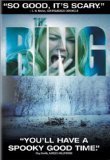
 Right before we left for Quebec, we started noticing something strange with our water. It would shut off at random times. You'd be in the middle of a shower, and then suddenly poof! The water turned off. It would come back on thirty seconds later or something--without you having touched the spigot at all.
Right before we left for Quebec, we started noticing something strange with our water. It would shut off at random times. You'd be in the middle of a shower, and then suddenly poof! The water turned off. It would come back on thirty seconds later or something--without you having touched the spigot at all.This is not what you want to have happen to you in the shower. It's also not an ideal water situation for your house.
But vacation beckoned, so we had to leave the problem be for then, hoping that when we got back, magical fairies would have come and fixed it. All I can say is that if the fairies did come to fix it, they did a pretty awful job. The problem's still ongoing--even after having not touched our water source (a drilled well) in five days.
After extensive testing (and replacing the pump switch, which seemed like it could be the problem), we've discovered it's either a case of our well going dry, a leak somewhere in the line from the well to our house, or a faulty pump. I'm kind of rooting for the faulty pump, just because I have a feeling that will be less expensive to fix. (Though who really knows.)
The good news is that we still have water. As long as we don't use too much at one time, we have no issues at all. It's when the tank gets too low that thing shut off. Of course, the problem's there all along--the pump gets water in thirty second bursts, it appears--as opposed to non-stop pumping, which is what it ought to be doing. It does that--all the time. We just notice it when we use too much water. Make sense?
So . . . looks like I might have to call the well guys to come fix things. I know one of them personally. We'll start there. Here's hoping it's not too expensive of a fix, since we already spent a lot on the refinance. But this is why we have savings, I suppose. It just means we might not have enough to do much in the way of renovation this year . . .[image error]

Published on July 25, 2012 09:30
July 24, 2012
Quebec for Beginners
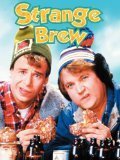
 Just got back from a family vacation to Quebec on Sunday--we'd been there since Wednesday. I've been to Canada once before, but when I was young enough that I don't really remember any of it that clearly at all. Just the fact that I'd been. Since we live so close to the country now, it didn't make any sense that we hadn't actually visited it. Especially since Quebec City was only four hours away. That's about as close as Boston.
Just got back from a family vacation to Quebec on Sunday--we'd been there since Wednesday. I've been to Canada once before, but when I was young enough that I don't really remember any of it that clearly at all. Just the fact that I'd been. Since we live so close to the country now, it didn't make any sense that we hadn't actually visited it. Especially since Quebec City was only four hours away. That's about as close as Boston.So we made the trek, and I'm back now to talk about it. Picture-free, alas. My camera is with Denisa, so I can't post the pics here. They'll be up on Facebook soon enough, though. Anyway.
There were a lot of unknowns on this trip. It didn't help that neither of us had had the time to really do some proper research about what we wanted to do and see. We thankfully had some friends who've been to Quebec many times, and they had great tips for what we shouldn't miss, but as for what to expect . . . we'd heard the city was "very European." However, we'd only really heard this from people who haven't been to Europe. So we weren't quite sure what to expect.
The border crossing was something Denisa was expecting to be simple. When we crossed the border between Czech Republic and Slovakia back in pre-EU days, it involved the guards staring at our passports for a bit (staring at mine--the American's--for quite a bit) and then waving us through. How much different could it be here?
Quite a bit.
They asked a slew of questions (Do you have any weapons? Do you own any weapons? Have you ever owned any weapons? Do you own mace? Do you own a taser? I'm not making this up). Then we had to park the car and go inside and wait while they did who knew what for about 15 minutes. Maybe some of this had to do with the fact that hardly anyone else was driving across the border. So . . . bored boarder patrol guards? In any case, it was quite extensive (and it was almost as extensive on the way back, although the American guards were friendlier.)
Gas was much more expensive. Somewhere around $4.90/gallon--thankfully, we were able to tank up right before we entered the country, and then made it back home on that one tank of gas.
We stopped for some food before we got to the city, and I had my first taste of poutine. Basically a French Canadian meal consisting of french fries covered in brown gravy and cheese curds. It was interesting. I think I liked it. :-)
I was surprised when we got there at how little English the woman at the restaurant spoke, but I figured there'd be more English when we got to the city.
Not so much.
I've been to a fair number of foreign countries. I'd have to say that Quebec City wins the award for "least amount of English spoken" if you don't count Eastern Europe. (Which I don't. Eastern Europe was all Russian until fairly recently, and it's becoming much more English-friendly lately.) Quebec was defiantly French-only. Some English spoken, but much less than in other countries--though it's certainly possible I just had a less-ordinary experience.
The city is very European. It didn't feel like I was just a few hours away from home, that's for sure. It sits right on the St. Lawrence River, with the Chateau Frontenac towering above the lower city, filling much the same role as a castle. It reminded me of Salzburg in many ways. The Old City is walled (the only walled city in North America north of Mexico City). The architecture is very Old World. I tried to compare it to Boston or Philadelphia, and the feel is just . . . different. Philly old city is colonial. This wasn't.
The food was great, although bakeries are definitely not the city's strong suit. We made several trips to bakeries, and we had to hunt to find them. Not much in the way of good bread--at least not in the touristy Old Town. Maybe it's better outside that area. We had crepes, which were highly tasty. And--ironically--some good Italian food. Did manage to get some goodies at a bakery we found, and they get two thumbs up from me for their chocolate cake. Chocolicious.
At the same time, it was all tremendously expensive, I thought. Crepes were $13 each. Dinners ran around $25, everywhere you went. (Note: I didn't visit the 2 McDonald's we passed. It might have been cheaper there.) Riding the little funicular up to the Old City was $2/a person for a thirty second ride. Brunch at the Chateau would have been $50 each. (We passed this time around.) Don't expect to go and do too much for cheap. (Though we did have a condo right downtown, which was very reasonably priced for a group, and we managed to get some tickets for a river cruise at almost 50% off, which was nice. Thanks, AAA!)
We saw much of the Old City: walked the walls surrounding it, avoided the throngs of Pink Floyd fans in town for a concert, checked out the battlefields, walked 398 steps up to said battlefields, saw Montmorency Falls from the cruise ship, visited the Museum of Civilization to see a really cool Samurai exhibit, shopped in the artsy areas, walked (and walked, and walked) (note: the toy store Benjos, while a great toy store, is a very long walk for a hot day with an 8 year old and a 4 year old).
All told, I highly recommend it. We'll be going back for sure. The kids had a great time, and there was still plenty of things we'd wanted to see but didn't get around to actually doing.
That said, it was nice to come home and get back into the swing of things here. Busy busy busy . . .
How about you all? How many of you have been to Quebec? Thoughts?

Published on July 24, 2012 09:30
July 23, 2012
Chapter Bumps and Fate vs. Free Will: Vodnik Chapter Thirteen
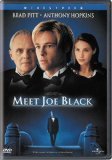
 Interestingly enough, this is a chapter that didn't change almost at all from the first draft to the last. Tomas was always going to save someone's life from Zubata/Morena. He was always going to ignite her wrath, and he was always going to be scared stiff of the consequences.
Interestingly enough, this is a chapter that didn't change almost at all from the first draft to the last. Tomas was always going to save someone's life from Zubata/Morena. He was always going to ignite her wrath, and he was always going to be scared stiff of the consequences.So what to talk about in this chapter's commentary?
One thing that *did* change was the addition of the chapter bumps--the little excerpts from Death in the Modern Day (DitMD) that start each chapter. These were a relatively late change to the novel. A lot of the material existed in the early drafts, but it was given in-text. I'd break the action to have Tomas read a long section of DitMD. My editor noted that was a clunky way to get that done, and I came up with putting them all in as they are now to see if that solved the problem.
I feel like it did a great job. Of course, I had to go back and write some new bumps, and not all of them have a whole lot to do with what's in the chapter in question, but it was a lot of fun. I really enjoy this writing technique, since it allows me to offer extra insight into the world from a point of view other than my main character. I've used the same approach in Cavern of Babel (my alpaca fantasy novel) to give a bunch of fun alpaca facts, and I've put it to use in my currently-being-shopped-around novel, Tarnhelm--each chapter begins with a quote from a noir movie that has something to do with the contents of the chapter.
I think one of the reasons I like chapter bumps so much is because they're a way to add extra material in, but not intrude on the reader. If the reader wants to skim them, she can. Or she can delve into them and enjoy them. My friend Brandon Sanderson uses them very well in his Mistborn series, and that's one of the things that made me like them so much--seeing what they're capable of.
On another note, I want to get a little meta. It's about my own book, so I suppose this is sort of self-congratulatory in a way, but oh well. It's my blog, and I can write what I want. Here's the deal: Morena has a handy little book that has listed all the times and places where a person's going to die. She knows the causes. This is a fundamental argument in favor of Fate as far as the Slovak side of mythology is concerned. Adam was scheduled to die at that time and place. Nothing he did could have changed it.
And yet, Tomas managed to do that, which throws the whole system into the air. If random acts by people can change Fate, how in the world can Fate function? Yes, you've got Morena around to iron out the little details, but you could certainly argue that doesn't hold much water. Any fluctuation in a big system like All of Humanity would create ripples that would create waves that would mess everything up.
So the question of the day is, "Did Morena set Tomas up?" Was this all just a big ruse to get Tomas to kill the vodnik? Is Vodnik ultimately arguing for fate or free will? How? If I were reading this book as someone other than the author, I think it would be kind of fun to go through and look to see what evidence there is in the text for each side of that issue.
Then again, I'm a writer/librarian/English MA holder. I like strange things.[image error]

Published on July 23, 2012 09:30
July 20, 2012
New Church Callings
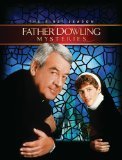
 This is more of an informational post for those of you (family and friends) who care, but Denisa and I had a reshuffling of church callings recently. (For those of you who don't know, in the Mormon faith, people are "called" to a church responsibility that lasts until their next calling.)
This is more of an informational post for those of you (family and friends) who care, but Denisa and I had a reshuffling of church callings recently. (For those of you who don't know, in the Mormon faith, people are "called" to a church responsibility that lasts until their next calling.)For the past 2.5 years, I've been the Elder's Quorum President--essentially in charge of keeping watch over the 20-45 year old men in this neck of the Mormon woods. It's a big time investment. I usually spent around 5-10 hours on it a week, sometimes more, sometimes less. Denisa's been the First Counselor in the Stake Young Women's Presidency--meaning she helped keep watch over the 12-18 year old Mormon girls in northern and central Maine (I'm really oversimplifying this, but oh well.)
She was just called to be the president--so she's the person in charge of that now. A much greater time commitment. And with that, I was released as Elder's Quorum President and called as the secretary, instead. (No more making decisions. Just keeping minutes. AOK with me.)
So Denisa's very very busy, and I've been using my freed up time to try and take things off her. Helping clean more, doing the dishes. That sort of thing. It's been working out okay so far, but I know she's been stressing about it a fair bit.
She'll do a great job. Join me in wishing her luck. :-)

Published on July 20, 2012 09:30
July 19, 2012
Another Two Belated Television Recommendations: White Collar and Psych
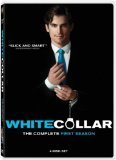
 Once again, I'm probably late coming to this party, but I wanted to throw this out there--Denisa and I have been watching and enjoying White Collar and Psych. They're both light mysteries, with plenty of comedy to keep them flowing along. Are they the best shows I've ever watched? No, not really. The plots are a bit flimsy at times, and you can see the USA formula churning a little too easily now and then. (At this point USA seems determined to just have as many of these light mysteries as they can. Pick a quirky character (Monk, Psych, Burn Notice, White Collar), give him a few unique traits, add in some best friends with opposite, complementing traits, and have them go around solving crime.
Once again, I'm probably late coming to this party, but I wanted to throw this out there--Denisa and I have been watching and enjoying White Collar and Psych. They're both light mysteries, with plenty of comedy to keep them flowing along. Are they the best shows I've ever watched? No, not really. The plots are a bit flimsy at times, and you can see the USA formula churning a little too easily now and then. (At this point USA seems determined to just have as many of these light mysteries as they can. Pick a quirky character (Monk, Psych, Burn Notice, White Collar), give him a few unique traits, add in some best friends with opposite, complementing traits, and have them go around solving crime.Then again, there are worse shows out there to watch. At least the characters are mostly original. I don't know if I'd watch these for weeks and weeks on end, but they're fun enough for 40 minutes at the end of a long day, and you don't have to suffer through commercials. :-)
In Psych, the main character is a schlub who's lazy and fun loving, but also is fantastic at noticing small details. He can analyze a scene in an instant and recall it all later. He's managed to get a job moonlighting as a psychic for the police--who don't think he's psychic, but strangely don't seem to care. They keep having him come back to help them solve crimes. (Although as a quibble, it never makes sense to me why the police in shows like this are always so reluctant to turn to the hero of the show. He always solves the crime. Are they that stubborn or that stupid that they consistently turn down the best option for finding out whodunnit? Also, why doesn't the local town just fire most of the police force and have the main character solve crime solo?)
In White Collar, the main character is a con man who's made a deal with the FBI to solve cases with them instead of rotting in a jail cell. He's fun loving and fancy free, though there's of course the requisite Bigger Plot--a missing girlfriend who he's trying to find. The show's fun enough, though again, one marvels that there are so many expert con artists the FBI hasn't been able to catch . . . until the main character comes along, at which point they start getting nabbed at the rate of one a week.
But those sorts of problems aren't new. Every themed show has to deal with that in one way or another. All part of the willing suspension of disbelief. I just imagine it's made worse by watching shows back to back instead of week to week.
Still, Netflix Instant Watch really is perfect for television, and I hope they start adding a wider range of shows eventually. I'd love to see some of the newer ones, but then again, I've watched so many of them now that a lot of the awesome backlog I had accumulated is gone. Such is life.[image error]

Published on July 19, 2012 09:30
July 18, 2012
Whitney Award Nominations Open (Hint Hint!)

 (Sorry for the pic--I couldn't resist.) Important to all Vodnik fans. The Whitney Awards are open to nominations right now, and Vodnik is eligible. What are these awards? They're supposed to celebrate excellence in Mormon literature--meaning in this case, literature written by Mormons. (For more information on them, check out the FAQ.)
(Sorry for the pic--I couldn't resist.) Important to all Vodnik fans. The Whitney Awards are open to nominations right now, and Vodnik is eligible. What are these awards? They're supposed to celebrate excellence in Mormon literature--meaning in this case, literature written by Mormons. (For more information on them, check out the FAQ.)They have categories (that Vodnik would qualify for) in Best Novel, Best Novel by a New Author, and Best Youth Fiction--Speculative. To nominate Vodnik, all you need to do is go here and fill in the form. You don't have to be a Mormon to nominate. You just have to be older than 12 and not be the author (that's me), the publisher, or anyone monetarily involved in the book.
One more time, for those of you who missed it. Here's the link to nominate Vodnik, by Bryce Moore.
http://whitneyawards.com/wordpress/nominate/
:-)
Thanks in advance. :-)
In other news, I'm off to Quebec for the next few days, heading out with family to go exploring. Denisa's going to try and find some awesome bakeries, and I'm going to . . . just be awesome. We've been told that Quebec City has a very European flavor to it, and we've got high hopes.
The bottom line is that I'm not sure how much I'll be able to post. I'm going to write some posts in advance, so you're not completely without my comforting presence, but if you don't see me posting things of Facebook or Twitter, now you know why.

Published on July 18, 2012 09:30
July 17, 2012
Camping Adventures--Flagstaff Lake
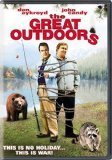
 I took the fam off camping on Friday. We didn't actually stay very long. A friend had set a tent up for us in advance, and we rolled in around 6pm, then left Saturday around 10am. We had company coming for the weekend and had to be back to finish cleaning the house. So since I didn't tend the fire at all, set up the tent at all, cook anything at all . . . I'm not sure I can really count it as an official camping trip.
I took the fam off camping on Friday. We didn't actually stay very long. A friend had set a tent up for us in advance, and we rolled in around 6pm, then left Saturday around 10am. We had company coming for the weekend and had to be back to finish cleaning the house. So since I didn't tend the fire at all, set up the tent at all, cook anything at all . . . I'm not sure I can really count it as an official camping trip.But we did have a good time. It looked like this, pretty much:

Very peaceful. We haven't actually been camping since we moved to Maine, much to my chagrin. With DC being a baby, we chose to wait until she was older before we started branching out. The kids had a blast. There was a lake to swim in, marshmallows to eat, Jiffy Pop, hotdogs--all the camping requirements. The bugs were out in force--despite my best efforts to drown them in DEET--and DC is still scratching, but I think she'd gladly go again.
Flagstaff Lake actually has a very interesting history. It was enlarged back in 1950, and they had to flood a town (Flagstaff) to do so. Quite controversial at the time.
We also went canoeing on the lake, and I'm happy to say no one got wet. :-) It was a bit windy, and it was my first time canoeing on a lake, and we were doing it all on our own, so I suppose that's something to be proud of.
Not sure if we'll be able to get out again this summer, but autumn's a possibility. We just have to slow things down and have less to do . . .
And to commemorate the occasion, here's one of my favorite clips from The Great Outdoors. It's just missing the part at the end where Candy comes home to find what the raccoons did to his house.

Published on July 17, 2012 09:30
July 16, 2012
Reverse Prejudice: Vodnik Chapter Twelve
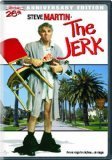
 A lot happens in this chapter. Tomas finally gives a tour, we see Death again, Vito makes another appearance, Tomas has another water vision--but what I'd really like to focus on today is the scene where Tomas sees Americans for the first time, after having been away from America for a few months. Here's how Tomas describes it in the book:
A lot happens in this chapter. Tomas finally gives a tour, we see Death again, Vito makes another appearance, Tomas has another water vision--but what I'd really like to focus on today is the scene where Tomas sees Americans for the first time, after having been away from America for a few months. Here's how Tomas describes it in the book:
I heard it long
before I saw them. Loud, cacophonous talking that sounded more like a flock of
seagulls than people communicating. Katka and I turned at the same time to see
a group of twenty making its way up the hill, all of them dressed in bright
colors and stupid hats, all in stars and stripes. It was the first time I’d
ever looked at a group of Americans and seen them as other people might. Were
we all that obnoxious?
I put this scene in for a number of reasons. First and foremost, I wanted Tomas to note how much he had changed in the time he'd been in Slovakia. Contrasting himself with other Americans is a good way to do that. Of course, this begs the question--are American tourists the same as Americans? And in a book that has a major theme speaking against racism and prejudice, is it fair to have the main character attribute a group of people's behavior to their nationality?
Obviously I think it is--I left that part in the book. :-) But I left it in very deliberately. For one thing, it reflects a feeling I often had when I was living in Germany. I was there for two years--long enough to start to feel quite different from the other Americans I'd meet now and then. At the same time, I never felt like a German, either. When you're living in a different country for a long period of time, you start to end up in a sort of limbo-state, where you don't fit in anywhere. (I remember hearing that Arnold Schwarzenegger has that problem these days. His accent in English is obviously foreign, for example, but in Austrian, his accent is too American. He literally has nowhere he can go where he can just blend in. Not that he'd be able to do that anyway, being Ah-nold and all, but you get the point.)
My instinct when I was in Germany was to try and do what Tomas does here--distance myself in many ways from my countrymen. They were too loud. Too rude. Too _______. I think I'd meet an American sometimes and be surprised by something about them, and then my knee-jerk reaction was to say "That's how all Americans are."
This is ridiculous, of course--and I don't believe it now. Saying all ______ are _______ is a good sign that you're being prejudiced. It's much more accurate to take people on a case by case basis. Though of course, stereotypes do become stereotypes for a reason. Is it safe to say many Americans are brash, loud, and boorish when they're in another country? I'd say--unfortunately--yes. Just like many Japanese tourists take far more pictures when they're in tourist mode than Americans do, for example.
Some of these differences are due to contrasts in cultures. Slovaks are--on the whole--much blunter than Americans, for example. They say what they mean. If they think you look fat, they'll tell you outright. This isn't being rude by Slovak standards, but it is rude by American ones. So when a Slovak tells me I've put on weight and should go on a diet, should I be offended? When Americans are brash and loud--in comparison to European standards--should they be yelled at to quiet down?
I don't have any answers about this. People often cite the Golden Rule: Do unto others as you would have others do unto you. But I think this misses the point--especially in cross-cultural instances. In those cases, it would be better to say "Do unto others as they would have others do unto them." In other words, approach and treat people not how you think they should be treated, but how they think they should be treated. If everyone was a little more open to seeing the world from another person's point of view--and acting accordingly--I think we'd all be a lot better off.
If you don't dismiss a cultural as "different" and therefore "worse," you're much likelier to learn things about other people, have a great time in different countries and cultures, and be a better person.
That's the me-as-a-grownup talking. The sixteen year old me? He'd totally have done what Tomas did in this chapter. Dismissed an entire group of people with a single label. "American." Therefore brash, loud and obnoxious. It doesn't help that they confirm this, through the grandmother in the scene who's so insistent on getting a good deal. (I saw this play out at Trencin Castle, by the way. True story.)
I could go on, but I'm out of time. Bottom line: I thought about taking this scene out during the revision process, but after contemplating it, I decided it was even more important that it stay. Tomas experiences prejudice, but he's prejudiced himself in turn. It's not a one way street, and it's easy to have it crop up in your viewpoint when you least expect it.

Published on July 16, 2012 09:23























